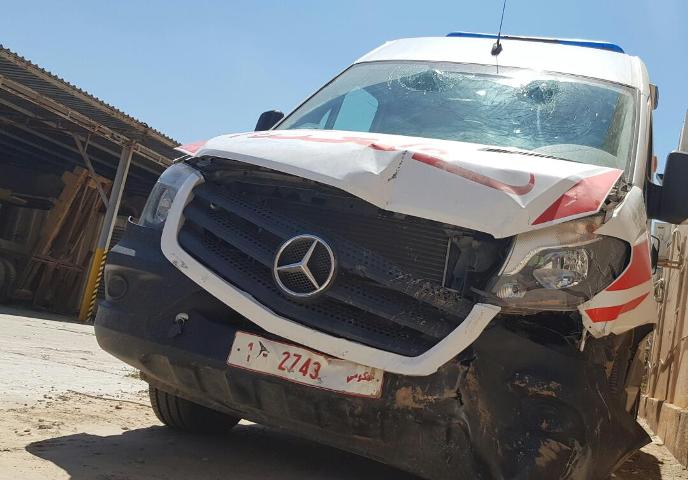WHO Reports Alarming Attacks on Health Care in Lebanon Amid Escalating Conflict
Lebanon's health system is under immense pressure, struggling to maintain essential services while coping with an unprecedented influx of injured individuals.

Since hostilities escalated between Israel and Lebanon on September 17, 2024, the World Health Organization (WHO) has verified 23 attacks on health care facilities in Lebanon, resulting in 72 deaths and 43 injuries among health workers and patients. The violence has severely impacted the ability of health facilities to provide essential services, as 15 incidents targeted health facilities and 13 affected health transport.
Health System Under Siege
Lebanon's health system is under immense pressure, struggling to maintain essential services while coping with an unprecedented influx of injured individuals. Many hospitals are already understaffed and under-resourced, leading to exhausted health workers and depleted supplies. As the conflict continues, increasing bombardment and insecurity are forcing a growing number of health facilities to shut down, particularly in the southern regions.
Of the 207 primary healthcare centers and dispensaries located in conflict-affected areas, 100 are now closed. Hospitals have had to evacuate or shut down due to structural damage or their proximity to intense bombardment zones. As of now, five hospitals have been fully evacuated, and another five have been partially evacuated. This has resulted in critical patients—such as those requiring cancer treatment or dialysis—being referred to other overwhelmed hospitals. Dialysis centers are now operating additional shifts to accommodate the increased patient load, yet they remain under-resourced in terms of essential blood testing supplies and personnel.
Urgent Call for Action
Dr. Hanan Balkhy, WHO Regional Director for the Eastern Mediterranean, expressed deep concern over the situation, stating, “The situation in Lebanon is alarming. Attacks on health care debilitate health systems and impede their ability to continue to perform. They also prevent entire communities from accessing health services when they need them the most.” Dr. Balkhy emphasized the necessity for an immediate ceasefire, stating, “WHO is working tirelessly with the Ministry of Public Health in Lebanon to address critical gaps and support the continuity of essential health services.”
WHO's Response Efforts
In response to the escalating needs, WHO has been actively delivering essential medical supplies. On October 4 and 5, four flights containing medical supplies for trauma care, cholera prevention, and mental health treatment arrived in Beirut from WHO’s logistics hub in Dubai. These supplies are currently being distributed to priority hospitals, with enough resources to treat around 100,000 patients. WHO is also making efforts to bring in additional supplies to meet the rising demand.
The organization continues to coordinate with the Lebanese Red Cross and local hospitals to ensure that blood banks are adequately stocked, including essential testing supplies for safe blood donation. Surgical trauma capabilities are being strengthened through specialized training for surgeons in war trauma surgery. WHO is collaborating with the Ministry of Public Health to establish trauma centers within existing hospitals and to plan for the deployment of Emergency Medical Teams.
Additionally, WHO is supporting the ministry’s Epidemiological Surveillance Unit in expanding community-based monitoring of priority diseases in shelters housing displaced people. This includes surveillance for acute watery diarrhea, respiratory infections, and other communicable diseases. WHO is also working to ensure that shelters are linked with primary health centers to support the continuity of health services and provide essential medications.
WHO reiterates its call for an end to attacks on health care, emphasizing that health care must be protected at all times. “Peace is the only solution,” the organization stresses, highlighting the urgent need for stability in order to restore health services for the people of Lebanon.
- READ MORE ON:
- Lebanon










